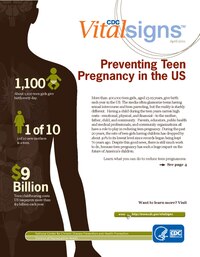
Photo from wikipedia
Authors consider reproductive health in this issue of Health Care for Women International. Several relate to the experience of pregnancy and the aftermath of birth. In three others articles, the… Click to show full abstract
Authors consider reproductive health in this issue of Health Care for Women International. Several relate to the experience of pregnancy and the aftermath of birth. In three others articles, the authors address issues stemming from migration and immigration. We begin with Cheryl Ann Anderson’s article. She conducted a systematic literature review about events that happen during the birth process that endanger the mother or the infant or both. We learn from her analysis that any woman can experience post-birth trauma due to issues that are beyond her control. Anderson suggests practitioners should assess women pre-and post-partum, to minimize symptoms of subsequent psychological trauma that may otherwise last a lifetime. In the other articles about pregnancy and birth, there are both good examples of how to reduce traumatic births, and not so good examples, although discussing trauma was not the authors’ intention. Walaa Abdrabbo and Abeer M. Alrashed, in their Saudi Arabian study, provide evidence that with proper assessment, they can limit trauma that would occur otherwise in consequence of intrauterine growth restriction. Similarly, Erin Smith and colleagues, working in southern India, write about the efforts of public health practitioners who counsel women about family planning. Doing so has helped the women and the country in general to limit births and maximize resources for existing children. In contrast, Marion Alex and Joanne Whitty-Rogers discuss pregnancy complications in Haiti, where women are so poor and give birth in such squalor, that I would judge most births there to be traumatic according to Anderson’s criteria. Ana Bravo-Moreno makes a methodological contribution to the study of women’s health issues through her study in Spain of women who become single mothers by choice. As their children have been created with the assistance of artificial insemination or gamete insertion after fertilization invitro with donated sperm, the author also explores the ethical issues concerned with these reproductive practices. Regarding internal migration among Nigerian women, I was glad to see empirical data from the work of Joshua O. Akinyemi, et al. on the effect of migration on contraceptive use. The authors found internal migration status was not independently associated with contraceptive among Nigeria women when individual and contextual characteristics are controlled. Other variables such as education, wealth, and exposure to family planning information were more predictive of contraception use in
Journal Title: Health Care for Women International
Year Published: 2017
Link to full text (if available)
Share on Social Media: Sign Up to like & get
recommendations!